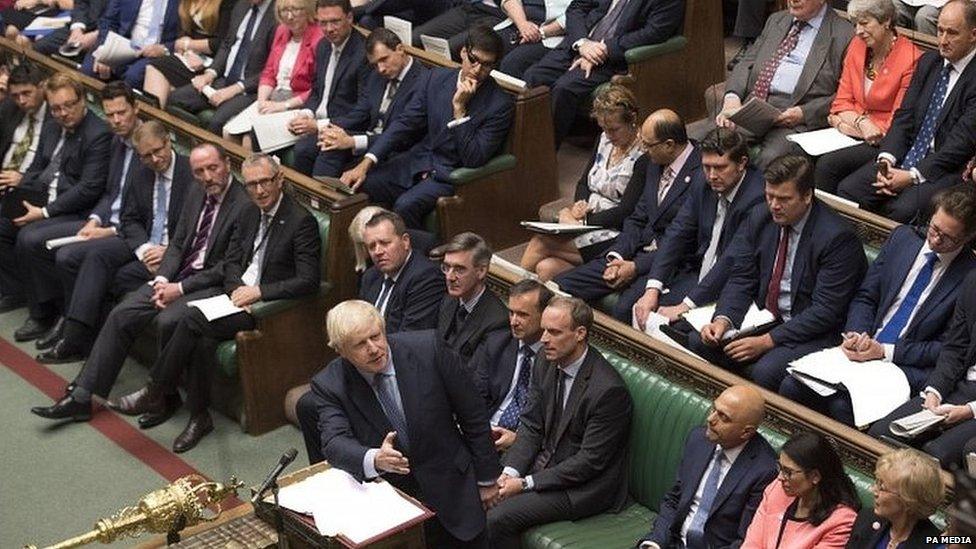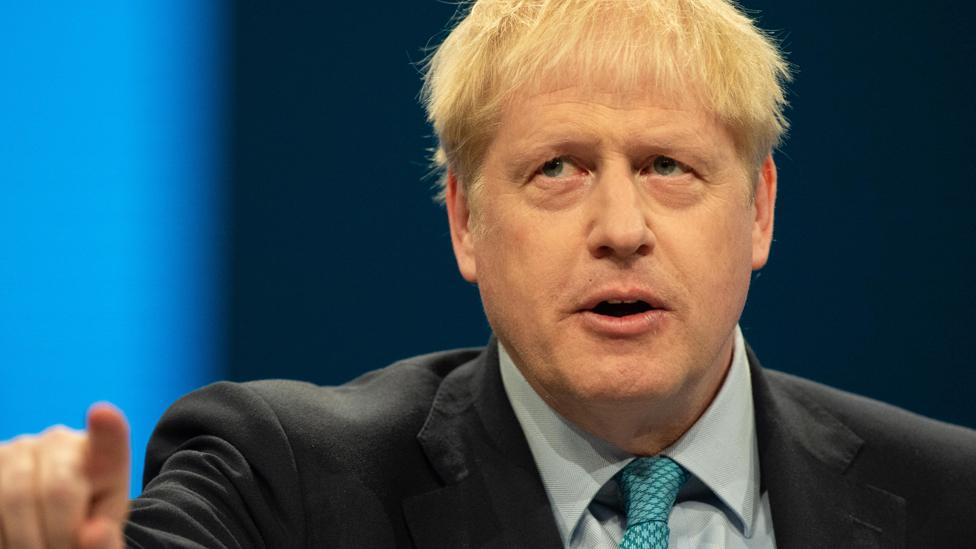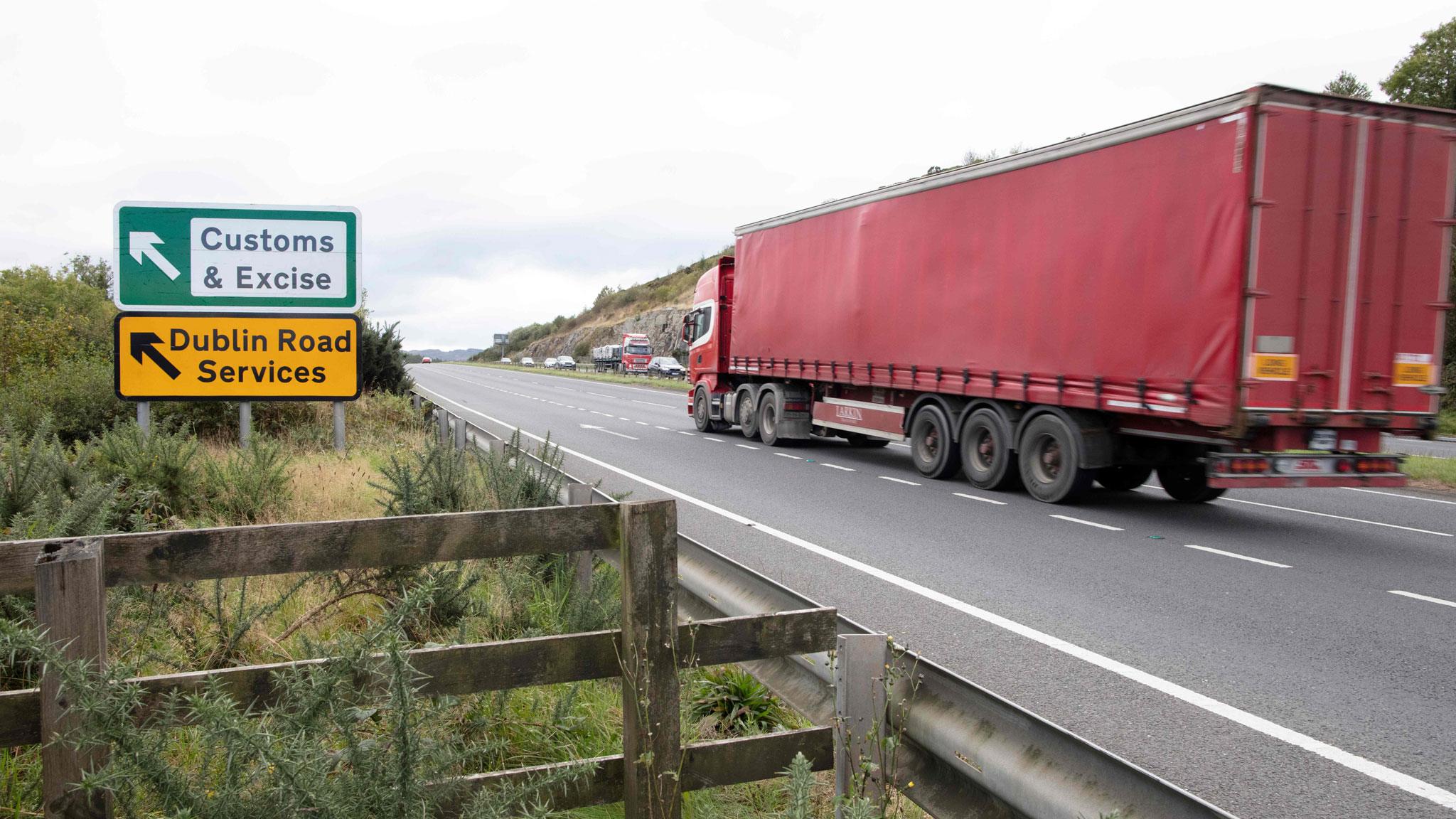Will 'Super Saturday' be a decisive Brexit moment?
- Published

A new date in the diary, a new countdown.
Not the EU summit, not the prime minister's deadline, but what might be a decisive day in the immediate aftermath, already being joked about as Super Saturday.
As I wrote a couple of weeks ago, in the unlikely event that there is a deal with the EU (progress check, still unlikely but not completely impossible) then the 19 October had been pencilled in as the day when Parliament would be asked to approve the arrangement the prime minister had brokered.
Whatever happens now though, Mr Johnson plans to summon MPs to Westminster, where by whatever mechanisms available, he'll essentially try to force a decisive moment.
If as expected now, there is no deal, why would he not just automatically do what Parliament has changed the law to do, to seek a delay from the EU immediately?
The deadline for that to happen is midnight on that Saturday night.
But up until that moment, and perhaps well beyond, Boris Johnson will fight the delay - not just because he believes it would be a mistake, but also because it is a political embarrassment for him to break the promise he flamboyantly made during the summer's leadership campaign and relentlessly since.
That promise is that he would not ask for a delay, he'd stick to his Halloween deadline "do or die" - you can pick your particular dramatic metaphor, there are plenty to choose from.
But he will overtly do his utmost to pin the blame for a delay on MPs. Whether you agree or find it repellent, there is nothing subtle about the obvious pitching of this No 10 against former Remainers.
The truth is a delay would be a policy failure for the prime minister - forget for the moment that he and his team would use it to help their efforts to win a broader political argument.
But inside government there is a belief that it might not quite be over. Don't all scream at once. Yes, there are lawyers everywhere warning that there is no way round the so-called Benn Act and they may well be absolutely right.
There are active attempts in court to make sure that the legal provisions to force an extension are watertight. And several Cabinet ministers have told me they can see no way to avoid a delay if there is no deal. More in sorrow than in anger one told me "the EU will do what it always does, play long, and we'll have to agree".
But inside Number 10 there are still discussions about whether to send a second letter to the EU - meaning the government would comply with the Benn Act demanding that the government has to seek a delay in letter one but then send another letter alongside it essentially denouncing that idea from a political perspective.
Put that alongside likely protestations from the prime minister that a delay would be pointless, and perhaps that he would refuse to negotiate any further, and we might all find ourselves in an extremely turbulent period, where the reactions of the EU could be hard to predict.
This would likely see the government almost immediately facing challenges in court, or perhaps even pursuing a few of their own.
But despite all of the legal and political speculation, as I've written before, this is an untested area where there are no precedents and no conventions to guide us. That's why some of the wilder suggestions, including one that Boris Johnson might even refuse to move out of Number 10 if he loses a confidence vote and can't form a government, are impossible at the moment to exclude.
Whatever happens on 19 October, that may be the moment when the extent of the provocation Downing Street is willing to pursue becomes clear.
PS. Whatever you think of the aggressive noises coming out of the government about the state of the negotiations and the audacity of their plans, be in no doubt it is designed to convey a message to the EU not to expect Boris Johnson to compromise more readily after the likely general election.
Essentially the dramatic language is designed not just to irritate their opponents, but also to make it clear to their negotiating opponents that any Brexit offer from the UK, if there is a Tory majority after the election, is likely to be a harder not softer one and the EU will face a government less willing to compromise, not more.
The hope is to make it seem to the EU that their safest choice is to grab this deal. But at this stage, there is not much sign of that happening.
PPS. All the hostility has created a separate row in the Tory Party over what goes in their election manifesto. Some Brexit hawks believe it ought to promise an automatic no-deal departure if they win the election (a huge if!)
That suggestion riled some ministers and MPs who believe they now have some assurances from Mr Johnson that it would not be so stark.
As I understand it there is no final decision. But a likely position is a souped-up version of the PM's 31 October pledge - where the manifesto would say the Conservatives would like to leave with a deal, but if a tight deadline - maybe extremely tight - can't be met, then it's no deal at a pace.
Their upset is yet more evidence of Boris Johnson's challenge in keeping the Tories together, and trying to be able to please both former Remain voters and Leavers alike.
- Published7 October 2019

- Published2 October 2019

